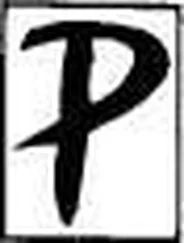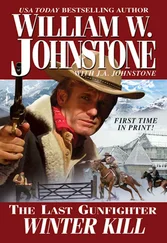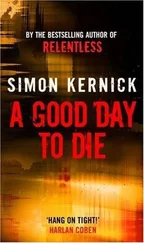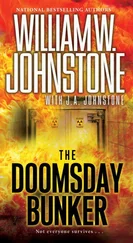William Johnstone - A Good Day to Die
Здесь есть возможность читать онлайн «William Johnstone - A Good Day to Die» весь текст электронной книги совершенно бесплатно (целиком полную версию без сокращений). В некоторых случаях можно слушать аудио, скачать через торрент в формате fb2 и присутствует краткое содержание. Год выпуска: 2012, Издательство: Kensington Publishing Corp., Жанр: Старинная литература, на английском языке. Описание произведения, (предисловие) а так же отзывы посетителей доступны на портале библиотеки ЛибКат.
- Название:A Good Day to Die
- Автор:
- Издательство:Kensington Publishing Corp.
- Жанр:
- Год:2012
- ISBN:нет данных
- Рейтинг книги:4 / 5. Голосов: 1
-
Избранное:Добавить в избранное
- Отзывы:
-
Ваша оценка:
- 80
- 1
- 2
- 3
- 4
- 5
A Good Day to Die: краткое содержание, описание и аннотация
Предлагаем к чтению аннотацию, описание, краткое содержание или предисловие (зависит от того, что написал сам автор книги «A Good Day to Die»). Если вы не нашли необходимую информацию о книге — напишите в комментариях, мы постараемся отыскать её.
A Good Day to Die — читать онлайн бесплатно полную книгу (весь текст) целиком
Ниже представлен текст книги, разбитый по страницам. Система сохранения места последней прочитанной страницы, позволяет с удобством читать онлайн бесплатно книгу «A Good Day to Die», без необходимости каждый раз заново искать на чём Вы остановились. Поставьте закладку, и сможете в любой момент перейти на страницу, на которой закончили чтение.
Интервал:
Закладка:
Sam stopped fighting to hold on and threw himself off the horse, opposite from where the Comanche arrows had come. He hit the ground hard, breaking the fall as best he could as he rolled on his shoulders. It gave him a jolt, stunning him for a moment before he continued rolling to avoid being trampled by his horse as it ran away.
The mule brayed, breaking free and running down Trail Street, too.
Latigo was still in the saddle, hunched forward, with an arrow sticking out of his chest. Grabbing his gun, he fired at the ambushers. Red lines slanted from his gun barrel toward figures huddled in the shadows.
A strangled cry, abruptly choked off, showed that at least one shot had scored.
A bowstring twanged as another arrow was loosed, taking Latigo in the torso. He tilted sideways, firing a shot into the air as he fell off his horse.
A Comanche darted out of the street, tomahawk in hand. Shrieking a war cry, he charged Sam who lay sprawling on his back in the street.
With no time to get the mule’s-leg loose, Sam drew the Navy Colt stuck in his belt, firing up at the brave standing above him with war hatchet held high for a skull-splitting downstroke. He pumped several rounds into the center of the Indian. Muzzle flashes from the Colt underlit the brave’s face, highlighting stark death-mask agony. The Comanche collapsed.
Rifle fire tore out of the darkness, flying high and harmlessly over Sam. Pushing the dead man away, Sam rolled over. Raising himself on his elbows, he returned fire, tagging a brave who shrieked, spun and fell, the rifle falling from his hands.
The Colt was empty. Sam let it go and drew the mule’s-leg. Rising to his knees, he worked the lever, spewing lead into the side street. Muzzle flares pulsed with fiery flashes.
Three braves writhed, shrieking in a death dance as they were cut down.
On his feet, Sam advanced, levering the mule’s-leg, cutting down Comanches all the way to Commerce Street.
He watched as the two Comanches who had stayed behind to hold the horses hopped on the backs of their ponies to make their escape. Screened by a row of buildings, they were safe from Sam’s bullets.
The deadly little skirmish was over. But Latigo was dead.
TWENTY
The clock tower on the courthouse had been turned into a combination observation post and sniper’s nest. It was occupied by two Hangtown marksmen of note, Pete Zorn and Steve Maitland.
Zorn was an old-timer, a burnt-out cinder of a man, gray-haired, grizzled. A veteran of the Mexican-American War and the War Between the States, and countless shooting scrapes with Indians and owlhoots, he was a dead shot with a rifle.
Steve Maitland was a gangly, sixteen-year-old ranch kid with brown hair, a pink beardless face, and the clear cold gray eyes so often found in sharpshooters. He had finished second in the annual Thanksgiving Day turkey shoot the year before—no mean feat in Hangtown with its many top shooters.
Zorn had finished first that day and taken the prize.
The clock tower room was a square space, much of it taken up by clockwork machinery. Gears, wheels, flywheels, weights, counterweights, and pendulums were corroded with rust and thick with dust and congealed grease.
The walls had louvered side windows with adjustable horizontal wooden slats, allowing for light, vision, and ventilation. They also allowed for many and varied lines of fire covering much of Hangtown below.
The space was supplied with a couple chairs and whatnot to provide Zorn and Maitland with minimal comforts. A kerosene lamp burned smokily, trimmed low to provide illumination with minimal damage to the occupants’ night vision. Each shooter had his own rifle plus several extras supplied by the town to minimize time spent in reloading. There was plenty of ammunition, too.
Earlier, they had watched as a number of stealthy two-man teams set out from Four Corners to plant dynamite in the avenues of approach. They’d kept a ready eye out for prowling Comanches, but none had been seen. Not that they weren’t there. But if they were, they couldn’t be seen from the clock tower.
The first floor of the courthouse had seethed with noise and unrest when so many families had massed in the courtroom. The scene had quieted down with the lateness of the hour, but was still disturbed by anxious men, nervous females, sleepless kids, and squawling babies.
An office in the southeast corner of the second floor was reserved for the use of Wade Hutto, pursuant to his duties in town council and county administration. Hutto sat behind the desk, comfortably set up in a high-backed, well-cushioned chair. Seated across from him were Banker Willoughby, Alamo Bar owner Chance Stillman, and promoter Rutland Dean. Their chairs were smaller and not quite as comfortable as Hutto’s, but they were drinking his liquor and smoking his cigars.
A leather couch, useful for entertaining lady friends or for napping—stood in a corner against the wall. Boone Lassiter lay on his back, hat tilted over his eyes, awake. A lit cigar was clenched between his jaws; he held a tumbler of whiskey on his chest.
Hutto was making the best of a bad situation, but he would gladly have given plenty to be anywhere but where he was, waiting out the night hours before a full-scale Comanche onslaught.
“Good brandy,” Banker Willoughby said. “You do yourself right, friend Hutto.”
“In this job you need it,” Hutto replied. “Especially on a night like this.”
Gunfire sounded outside. There were shrieks in the distance. More shots—a death cry.
Boone Lassiter sat up, swinging his booted feet to the floor. Hutto came out from behind his desk and went to the south window. He lifted an edge of the window shade, peering outside. Lassiter went to the desk and blew out the light in the oil lamp. The room went dark, a line of light showing at the bottom of the door to the hallway.
The others crowded around Hutto at the window. It looked down on Trail Street, including the other three bulwarks of Four Corners. They could see the jail, the feed store, and the Golden Spur.
“What is it, Wade?” Dean asked.
“There’s movement down there, but the shooting came from farther up the street,” Hutto said. “Can’t quite make it out.”
Lassiter crossed the hall to the office opposite Hutto’s, and entered it. Empty and dark, the room held the southwest corner of the second floor. Standing to the side of a window facing west, he raised the curtain and looked outside.
Hutto and the others came into the room, the last one in leaving the door open.
“Close that door so we don’t show against the light,” Lassiter growled.
Willoughby shut the door, then joined the others.
The moon came out from behind a cloud, silvering rooftops and shining into the street. Motion swirled on Trail Street. Black forms of horses and men shifted and surged. A gun yammered, striking sparks of light.
A man screamed and fell. More shooting racketed up from the darkness.
The couthouse was astir. Pete Zorn and Steve Maitland went to the west wall of the clock tower, peering out and down through the wooden-slatted windows. They couldn’t make out much. The shooting had stopped, and the horsemen had fled, swallowed by darkness.
In the first floor courtroom, men started up out of troubled sleep—those with nerves strong enough to enable them to sleep, or drunk enough to have passed out for a blessed while. Women gasped, girls shrieked, children and babies fussed.
Armed men with sleep-bleared eyes staggered to the west windows for a look, only to be balked by the Golden Spur blocking their view.
Men moved around in the jail, feed store, and gambling house. Defenders made ready, but none ventured outside for fear of stepping into an ambush.
Читать дальшеИнтервал:
Закладка:
Похожие книги на «A Good Day to Die»
Представляем Вашему вниманию похожие книги на «A Good Day to Die» списком для выбора. Мы отобрали схожую по названию и смыслу литературу в надежде предоставить читателям больше вариантов отыскать новые, интересные, ещё непрочитанные произведения.
Обсуждение, отзывы о книге «A Good Day to Die» и просто собственные мнения читателей. Оставьте ваши комментарии, напишите, что Вы думаете о произведении, его смысле или главных героях. Укажите что конкретно понравилось, а что нет, и почему Вы так считаете.








